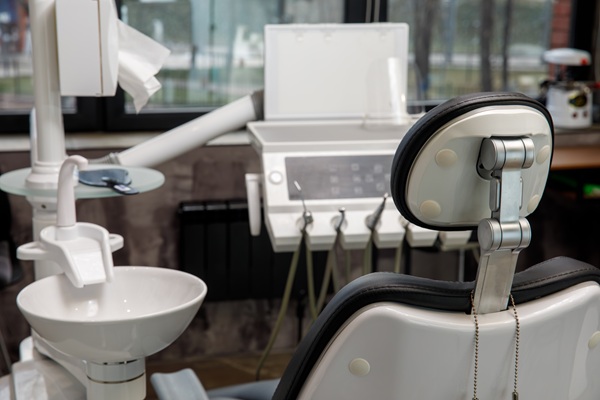How Does a General Dentist Identify Teeth Clenching?

Teeth clenching is an act performed during the day and at night. It is very similar to teeth grinding and jaw clenching, both of which have similar effects as teeth clenching. While some people clench their teeth throughout the day, it also happens at night, which can make it difficult to detect. Most of the time, individuals who clench their teeth visit their dentist and present them with the following symptoms. These symptoms help the general dentist to identify teeth clenching.
Warning signs of teeth clenching
Outlined below are a few of the warning signs that general dentists may use to identify teeth clenching. This information should be reviewed by individuals who suspect that they are clenching their teeth throughout the day or at night.
Decay and sensitivity
The number one way that a general dentist identifies teeth clenching is by checking for decay. When the surface of molar teeth are worn down or decayed, the cause is likely to be teeth clenching. As the teeth are rubbing up against one another, the enamel can wear off, over time. With the wear, comes sensitivity. When the enamel is worn down, hot and cold sensations are heightened.
Soreness
Any soreness in the oral cavity, around the jaw, or of the teeth may also signal that teeth clenching is occurring. While some individuals that clench their teeth do so during the day, there are also a lot of people who perform it at night when sleeping. Similar to grinding, teeth clenching is a result of stress, which can present itself while sleeping. Because there is the possibility of it occurring at night, dentists will ask the individual about any soreness.
Headaches
A common sign of teeth clenching is headaches. Individuals who clench their teeth or jaw often experience headaches throughout the day, which can be overwhelming. When the jaw works overtime as a result of the teeth clenching, the entire head is then put under pressure, thus resulting in excruciating headaches. The dentist will ask questions about day to day, including whether or not headaches are occurring.
Jaw malfunction
Another way that dentists identify teeth clenching is by looking at the individuals' jaw and evaluating it. If the jaw is malfunctioning or experiencing pain then teeth clenching may be the cause. A malfunctioning jaw may present itself as problematic when eating, speaking, smiling, or even attempting to perform oral hygiene.
Additionally, when the jaw malfunctions, the bite may also experience problems too. Teeth clenching, over time, can result in an uneven bite, whether it be cross, under, or over.
Find out more from a general dentist
When suffering from any of the above symptoms, it is best to undergo a consultation with a dentist. The consultation gives the dentist a chance to evaluate the symptoms to determine the most appropriate course of action. Additionally, questions or concerns about the teeth clenching can be addressed. Reach out today to learn more or to get scheduled for an appointment.
Request an appointment here: https://www.carmelsmilesdentist.com or call Smiles in the Village Dentistry at (317) 218-7985 for an appointment in our Carmel office.
Check out what others are saying about our services on Yelp: Read our Yelp reviews.
Related Posts
Dentists employ a root canal to save a badly damaged or infected tooth. When decay, injury, or infection affects the soft tissue inside a tooth, known as the pulp, a root canal is often the best way to fix it. This treatment relieves pain and protects the tooth from further damage. Knowing what to expect…
Your implant dentist may refer to a part of your dental implant restoration as an “abutment.” For many, this is a new term, and understanding what the implant dentist means can be helpful to feel more comfortable about what you can expect with the treatment process and your restoration.A dental abutment is a connecting piece…
During the consultation with an implant dentist, the patient and the dental team can put together a treatment plan. There are various steps during the teeth replacement process. Knowing them ahead of time can help the patient prepare prior to any scheduled procedures to ensure the implant dentistry process is as easy and convenient as…
Oral surgery is a branch of dental care that offers a wide range of procedures designed to address conditions and issues affecting the mouth, teeth, and jaw. These procedures can help maintain oral health and address complex dental problems. Understanding the different approaches to oral surgery can help patients make informed decisions about their treatment…


